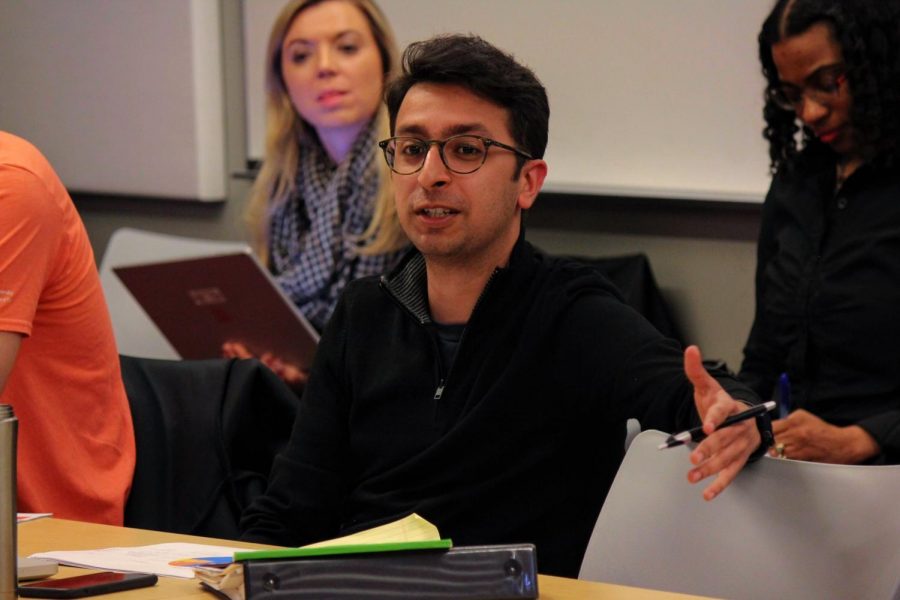ASOSU passes Athletics student fee increase during mediation session
February 4, 2020
The Athletics student fee was increased from $40.71 to $41.93 per student in the fall, winter and spring terms of 2020-21, during a mediation session on Feb. 3, held by Associated Students of Oregon State University Senate, House and Student Fee Committee members.
When it failed to pass in ASOSU’s second joint congressional session on Jan. 15, the Athletics fee was voted to go into mediation. The SFC had recommended a decrease in the 2019-20 fee from $40.71 per student to $36.90, however, the proposal failed.
The Mediation Committee consisted of the ASOSU speaker and chair, Ian Walker; ASOSU vice president and vice-chair, Kylie Boenisch; the SFC chair, Safi Ahmad; five members from the SFC; and three representatives and senators. The committee passed next year’s Athletic fee level with a nine to one vote.
Athletics representatives Jacque Bruns, the senior associate athletic director and chief financial officer, and Kimya Massey, the senior associate athletic director for student-athlete development, provided a slideshow hand-out that consisted of their key arguments to the committee.
Bruns said that as university enrollment increases, Athletics asks for less funding through student fees. But as enrollment decreases, they have to ask for a higher student fee level. There was a 3% decrease in enrollment this year. According to Bruns, athletic student fees help support tickets, student employment, academic support services, diversity initiatives, life skills programs (that began with only student-athletes) and mental health and student wellness. Currently, there are about 500 student-athletes and 388 students employed by Athletics.
Diversity and life skills initiatives, as well as mental health programs supported by the Athletics student fee were further discussed in the mediation.
“Real Talk, International Student-Athlete Club, First Gen. Club and Women Lead are some programs that focus on all students and are diversity and inclusion programs,” Massey said.
Bruns added that while many of these groups began with only athletes, they are now split 50/50 between students and athletes. For mental health programs, she said Athletics collaborates with Student Health Services and is working toward having a director of wellness.
The topic of ticket sales and the value of free student tickets were also discussed in further depth.
Representative Jack Hill said free student tickets are a good way to build community and make everyone feel welcomed. He said that compared to other universities, OSU’s Athletics departments ask for very little in funding.
SFC member Haley Ramsey seconded this. She said in comparison to other PAC-12 universities, OSU’s Athletics department is very financially respectful of its students. “[The] majority of PAC-12 schools charge for student tickets on top of student fees,” Bruns said.
According to Bruns, Athletics is currently running a deficit, and she presented a sustainability plan to the committee. “Through the sustainability plan, we plan to receive constant funding,” she said.
One goal of the sustainability plan is to decrease the Athletics deficit, according to Massey. So far, they have done this by assessing what may be cut within Athletics. He said that Athletics always tries to find other revenue sources before asking for student fee increases.











































































































